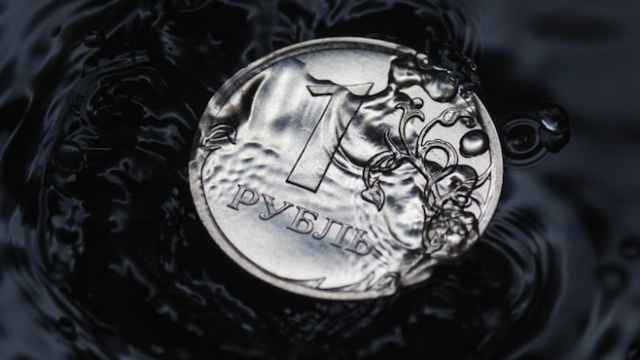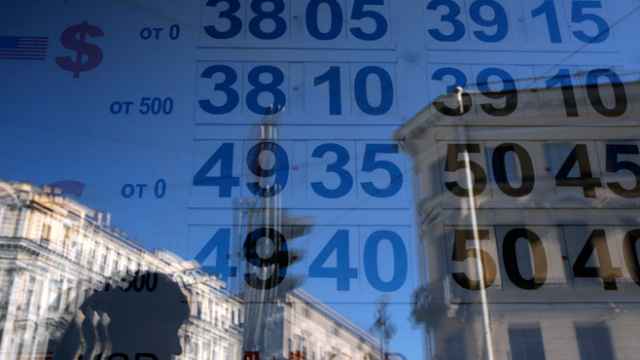LONDON — Fears of a full-blown crisis in Russia and oil's continued slide pushed investors to seek safety on Wednesday, buying core bonds and selling stocks while the ruble failed to halt its prolonged tumble.
With only days to go before the end of the trading year, investors were also looking ahead to the U.S. Federal Reserve's final statement of 2014, due at 1900 GMT. Analysts expect it to remove language pledging to wait a "considerable time" before raising U.S. interest rates.
German bund yields, which set the standard for euro zone borrowing costs, held near record lows reached on Tuesday, when U.S. 10-year T-note yields also plumbed fresh two-month lows.
While there appeared to be some initial respite for the Russian ruble on Wednesday after the finance ministry said it had begun selling foreign currency, the rebound was short-lived and the currency was down 1.3 percent against the dollar and 0.2 percent down against the euro.
The Russian economy remains in the grip of a "perfect storm" of low oil prices, looming recession and Western sanctions over the Ukraine crisis.
But the Fed loomed.
"It's fair to say that we are to a large degree on hold … until we get a clear idea about what the Fed is actually going to do," said Simon Derrick, chief currency strategist at Bank of New York Mellon in London. "That matters … most pertinently because of what it means for the oil price."
Oil prices held near multi-year lows of around $60 a barrel, with Brent crude down 60 cents to $59.41. Although oil's slide this year was triggered primarily by a supply glut, fears of cooling demand have also weighed on prices and hit financial markets in recent weeks.
Russian shares were mixed with the dollar-denominated RTS index up 3.6 percent — the first daily gains after a nine-day losing streak — while the ruble-based peer MICEX traded 1.8 percent lower.
The focus was also on Greece, which holds the first of three potential rounds of a presidential vote later in the day that will determine whether the country is forced into snap elections and a new period of political turmoil.
Stocks
Energy companies were among the worst performers on the stock market, with the pan-European FTSEurofirst 300 equity index down 0.8 percent and the MSCI All-Country World index down 0.3 percent near mid-October levels.
Stocks exposed to Russia and Eastern Europe have also taken a big hit as investors assess the possibility of capital controls or writedowns. Austria's Raiffeisen Bank was trading near all-time lows on Wednesday; Reuters reported it was looking to sell its Polish unit, according to sources.
"The attack this week on the ruble has been quite violent, and the market is now pricing in a recession in Russia next year," said Arnaud Scarpaci, fund manager at Montaigne Capital.
"A lot of European companies exposed to Russia are under pressure. It's better to avoid names such as Metro, Nokian and Societe Generale, at least until things stabilize in Russia."
A Message from The Moscow Times:
Dear readers,
We are facing unprecedented challenges. Russia's Prosecutor General's Office has designated The Moscow Times as an "undesirable" organization, criminalizing our work and putting our staff at risk of prosecution. This follows our earlier unjust labeling as a "foreign agent."
These actions are direct attempts to silence independent journalism in Russia. The authorities claim our work "discredits the decisions of the Russian leadership." We see things differently: we strive to provide accurate, unbiased reporting on Russia.
We, the journalists of The Moscow Times, refuse to be silenced. But to continue our work, we need your help.
Your support, no matter how small, makes a world of difference. If you can, please support us monthly starting from just $2. It's quick to set up, and every contribution makes a significant impact.
By supporting The Moscow Times, you're defending open, independent journalism in the face of repression. Thank you for standing with us.
Remind me later.






